Index relies entirely on the support of donors and readers to do its work.
Help us keep amplifying censored voices today.
[vc_row][vc_column width=”1/2″][vc_single_image image=”117589″ img_size=”full”][/vc_column][vc_column width=”1/2″][vc_column_text]In preparation for COP26, Index on Censorship invites you to reflect on the role of indigenous activists in climate activism.
As we prepare for challenging and necessary conversations at COP26, Index on Censorship brings attention to the cases of people whose voices are too easily forgotten in climate change debates. Index sheds light on the challenges of speaking up about climate change.
Join us for the launch of the new Index on Censorship magazine, A Climate of Fear. The conversation will be chaired by Index on Censorship acting editor Martin Bright with a focus on indigenous activists in Ecuador fighting for environmental justice and those who tell their stories.
Steven Donziger is a US lawyer who was part of an international legal team that obtained a multi-billion-dollar pollution judgment designed to remedy decades of deliberate toxic dumping by global oil company Chevron on indigenous ancestral lands in Ecuador.
Jimmy Piaguaje is an indigenous defender and filmmaker of Siekopai nationality from the community of Siekoya Remolino in Ecuador’s northeastern Amazon region. He is the co-founder of the Sëra Foundation, a grassroots organisation created by a group of young people from Siekoya Remolino to preserve their ancestral knowledge via audiovisual techniques and education. His latest documentary, about fighting covid in the Amazon with ancestral medicine, was published by the New Yorker.
Bethany Pitts is a writer and activist who has been working with indigenous communities in Ecuador since 2013, especially those defending the Amazon from oil exploitation. She is the author of the Moon Guide to Ecuador & The Galapagos Islands, the first internationally published guidebook on Ecuador with a focus on ethical travel. It was while Bethany was in the Amazon researching for her book in 2018 that she met Jimmy Piaguaje. Since then, she has been working to support the Sëra Foundation.
Martin Bright has over 30 years of experience as a journalist, working for the Observer, the Guardian and the New Statesman among others. He has worked on several high-profile freedom of expression cases often involving government secrecy. He broke the story of Iraq War whistleblower Katharine Gun, which was made into the movie Official Secrets (2019) starring Keira Knightley. He is the founder of Creative Society, a youth employment charity set up in response to the economic crash of 2008.[/vc_column_text][/vc_column][/vc_row][vc_row][vc_column][vc_column_text]
[/vc_column_text][/vc_column][/vc_row]
FEATURING
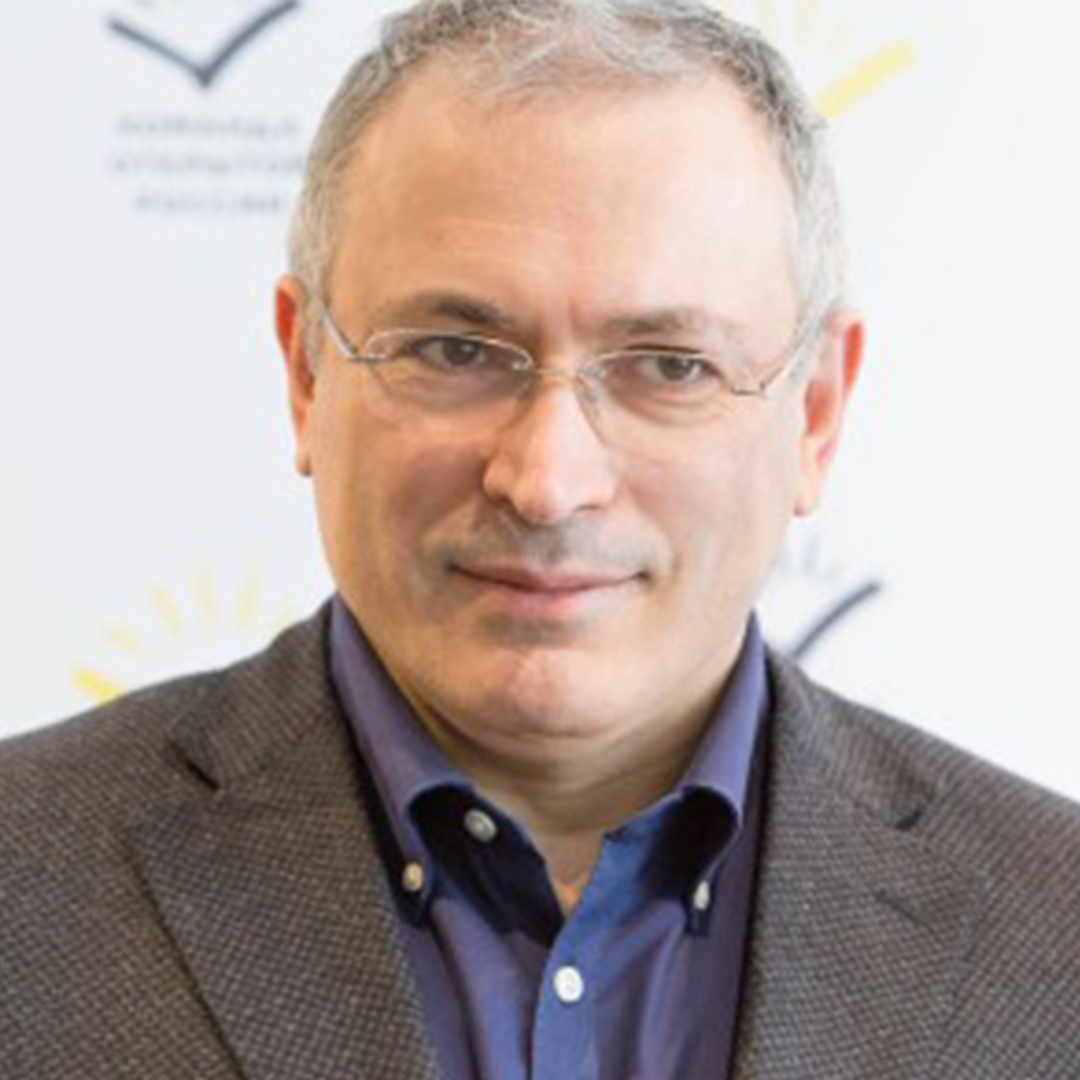
Dissident
Mikhail Khodorkovsky is founder of the Justice for Journalists Foundation.
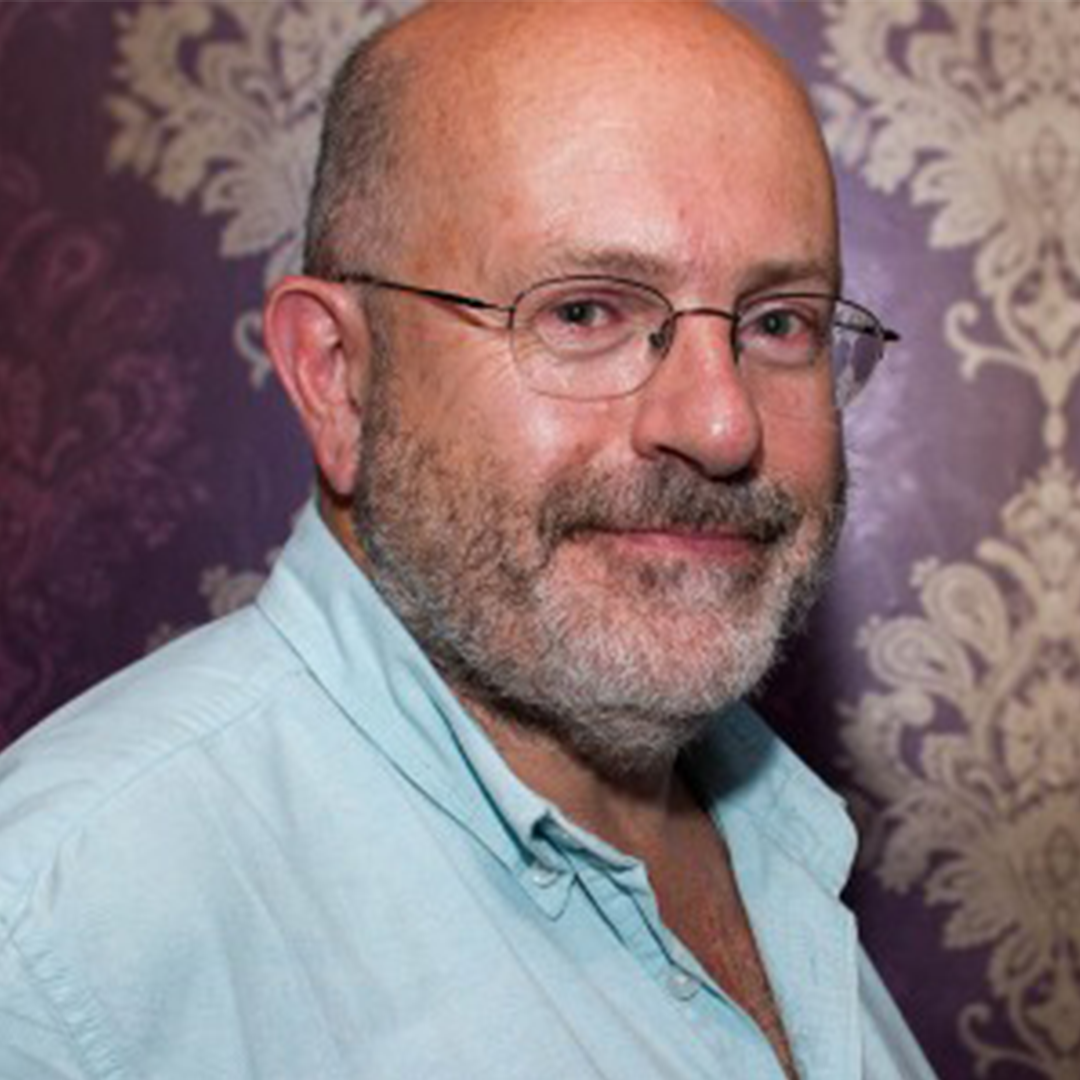
Journalist
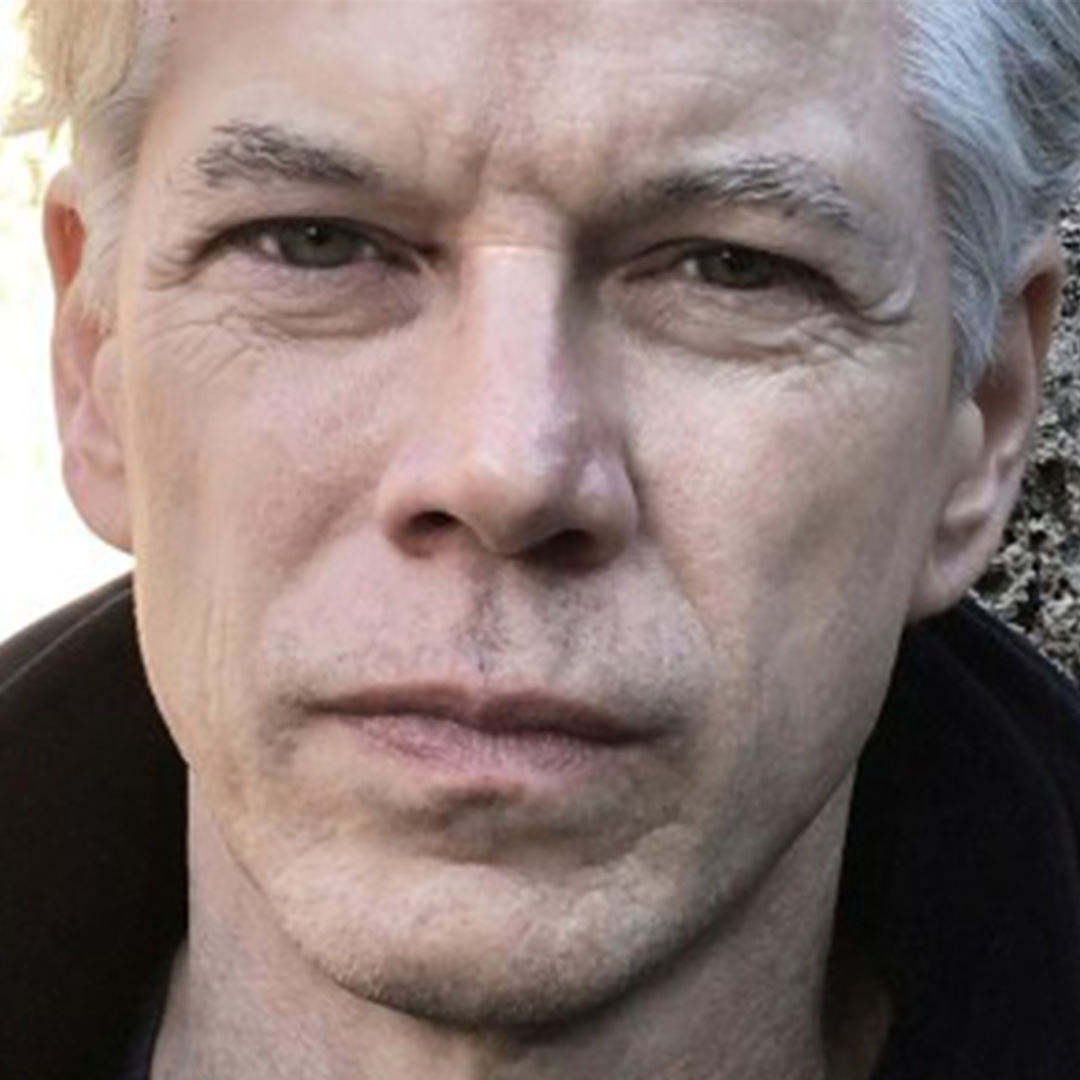
Activist and producer
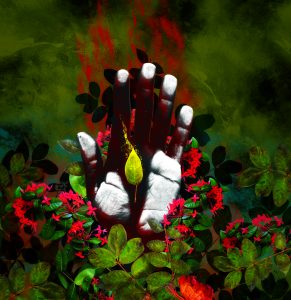
The Autumn issue of Index magazine focuses on the struggle for environmental justice by indigenous campaigners. Anticipating the United Nations Climate Change Conference (COP26), in Glasgow, in November, we’ve chosen to give voice to people who are constantly ignored in these discussions.
Writer Emily Brown talks to Yvonne Weldon, the first aboriginal mayoral candidate for Sydney, who is determined to fight for a green economy. Kaya Genç investigates the conspiracy theories and threats concerning green campaigners in Turkey, while Issa Sikiti da Silva reveals the openly hostile conditions that environmental activists have been through in Uganda.
Going to South America, Beth Pitts interviews two indigenous activists in Ecuador on declining populations and which methods they’ve been adopting to save their culture against the global giants extracting their resources.
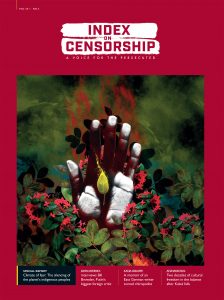 Cover of Index on Censorship Autumn 2021 (50-3)[/caption]
Cover of Index on Censorship Autumn 2021 (50-3)[/caption]
A climate of fear, by Martin Bright: Climate change is an era-defining issue. We must be able to speak out about it.
The Index: Free expression around the world today: the inspiring voices, the people who have been imprisoned and the trends, legislation and technology which are causing concern.
Pile-ons and censorship, by Maya Forstater: Maya Forstater was at the heart of an employment tribunal with significant ramifications. Read her response the Index’s last issue which discussed her case.
The West is frightened of confronting the bully, by John Sweeney: Meet Bill Browder. The political activist and financier most hated by Putin and the Kremlin.
An impossible choice, by Ruchi Kumar: The rapid advance of Taliban forces in Afghanistan has left little to no hope for journalists.
Words under fire, by Rachael Jolley: When oppressive regimes target free speech, libraries are usually top of their lists.
Letters from Lukashenka’s prisoners, by Maria Kalesnikava, Volha Takarchuk, Aliaksandr Vasilevich and Maxim Znak: Standing up to Europe’s last dictator lands you in jail. Read the heartbreaking testimony of the detained activists.
Bad blood, by Kelly Duda: How did an Arkansas blood scandal have reverberations around the world?
Welcome to hell, by Benjamin Lynch: Yangon’s Insein prison is where Myanmar’s dissidents are locked up. One photojournalist tells us of his time there.
Cartoon, by Ben Jennings: Are balanced debates really balanced? Ask Satan.[/vc_column_text][/vc_column][/vc_row][vc_row][vc_column][vc_custom_heading text=”Special Report” font_container=”tag:h2|font_size:22|text_align:left”][/vc_column][/vc_row][vc_row][vc_column][vc_column_text]
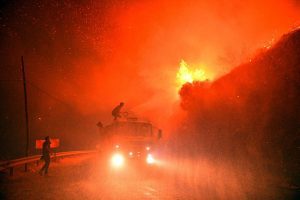
Credit: Xinhua/Alamy Live News
It’s not easy being green, by Kaya Genç: The Turkish government is fighting environmental protests with conspiracy theories.
It’s in our nature to fight, by Beth Pitts: The indigenous people of Ecuador are fighting for their future.
Respect for tradition, by Emily Brown: Australia has a history of “selective listening” when it comes to First Nations voices. But Aboriginal campaigners stand ready to share traditional knowledge.
The write way to fight, by Liz Jensen: Extinction Rebellion’s literary wing show that words remain our primary tool for protests.
Change in the pipeline? By Bridget Byrne: Indigenous American’s water is at risk. People are responding.
The rape of Uganda, by Issa Sikiti da Silva: Uganda’s natural resources continue to be plundered.Cigar smoke and mirrors, by James Bloodworth: Cuba’s propaganda must not blight our perception of it.
Denialism is not protected speech, by Oz Katerji: Should challenging facts be protected speech?
Permissible weapons, by Peter Hitchens: Peter Hitchens responds to Nerma Jelacic on her claims for disinformation in Syria.
No winners in Israel’s Ice Cream War, by Jo-Ann Mort: Is the boycott against Israel achieving anything?
Better out than in? By Mark Glanville: Can the ancient Euripides play The Bacchae explain hooliganism on the terraces?
Russia’s Greatest Export: Hostility to the free press, by Mikhail Khordokovsky: A billionaire exile tells us how Russia leads the way in the tactics employed to silence journalists.
Remembering Peter R de Vries, by Frederike Geeerdink: Read about the Dutch journalist gunned down for doing his job.
A right royal minefield, by John Lloyd: Whenever one of the Royal Family are interviewed, it seems to cause more problems.
A bulletin of frustration, by Ruth Smeeth: Climate change affects us all and we must fight for the voices being silenced by it.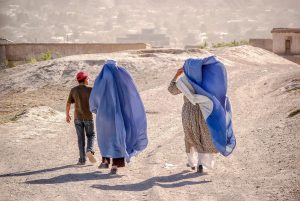 Credit: Gregory Maassen/Alamy[/caption]
Credit: Gregory Maassen/Alamy[/caption]
The man who blew up America, by David Grundy: Poet, playwright, activist and critic Amiri Baraka remains a controversial figure seven years after his death.
Suffering in silence, by Benjamin Lynch and Dr Parwana Fayyaz The award-winning poetry that reminds us of the values of free thought and how crucial it is for Afghan women.
Heart and Sole, by Mark Frary and Katja Oskamp: A fascinating extract gives us an insight into the bland lives of some of those who did not welcome the fall of the Berlin Wall.
Secret Agenda, by Martin Bright: Reforms to the UK’s Official Secret Act could create a chilling effect for journalists reporting on information in the public interest.
[vc_row][vc_column][vc_single_image image=”110001″ img_size=”full”][vc_column_text]There is no right not to be offended.
There is no right to cause harm and incite hate and violence.
These are not contradictory statements. In fact I believe that they are the founding pillars of how we should exercise our basic right to free speech in a democracy, but all too often we collectively seem to forget that.
And we ignore these basic principles at our peril; after all, none of us seek a bland public space. We thrive on debate and challenge, on new thinking and research; it drives social change, ensures progress and most importantly holds decision-makers to account.
Slavery, criminalisation of homosexuality and denying women the vote were also once legal until someone stood up and said no. These people started, at times, incredibly difficult and brave debates, launched inspiring campaigns and took people on a journey which changed hearts and minds and, of course, the law.
We can and should be able to do all of that without crossing a line into hate, without inspiring fear and without descending into violence and threat.
None of this should be controversial in a rational world; unfortunately rationality seems to be a rare commodity at the moment.
The concept of free speech has been a dominant feature in our political discourse over the last year. There has been a lot written about cancel culture, current and impending culture wars and the need to manage, if not shut down all together, debate.
Much of this has been driven by people who seek to raise their own profile at the expense of good and proper debate on serious issues that matter. This isn’t healthy for us as a society and honestly it is stifling our national conversation and leaving a political vacuum for those on the fringe to fill.
The world is facing a public health emergency and a global recession. There are serious injustices happening across the globe, both in democracies and repressive regimes. Yet we are seeing new and empowering political movements emerging demanding real equality, genuine citizenship and action on climate change across the planet.
All of these issues are going to inspire debate as we seek answers to some of the biggest questions our societies have ever faced.
Do we demand an end to globalisation because of the effects of worldwide trade on the environment?
Do we fight for public health measures as the expense of our civil liberties?
In the midst of a global recession is trade with China more important than human rights?
Honestly, in order to find the answers we need to listen to each other and not shut down the debate.
We need to hear from those being persecuted and those being marginalised. We need to listen to those people on the frontline of each issue and most importantly we need to respect each others position and opinion. In short we need to value not just our own right to free expression but other people’s too.
Index was established to be a voice for the persecuted, to provide a platform to those who couldn’t have their work published elsewhere and to shine a spotlight on areas where peoples voices were being silenced. I’m proud of that heritage and as our public space becomes increasingly hostile, I can promise you that Index will fight to ensure that we always have free and open debate[/vc_column_text][/vc_column][/vc_row][vc_row][vc_column][three_column_post title=”You might also like to read” category_id=”13527″][/vc_column][/vc_row]